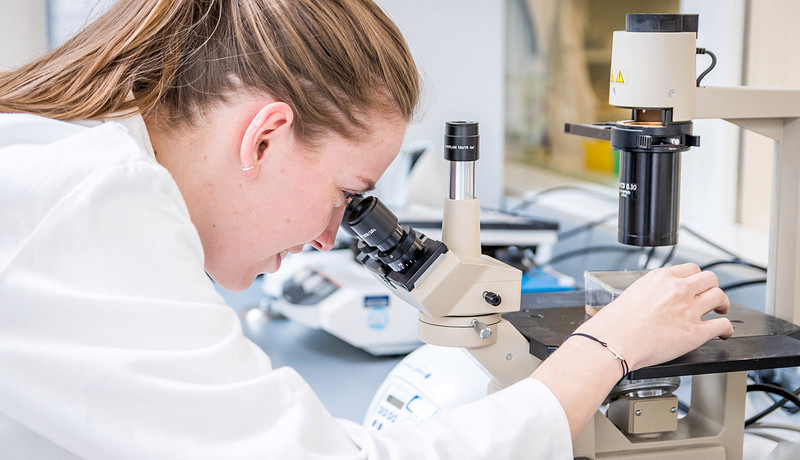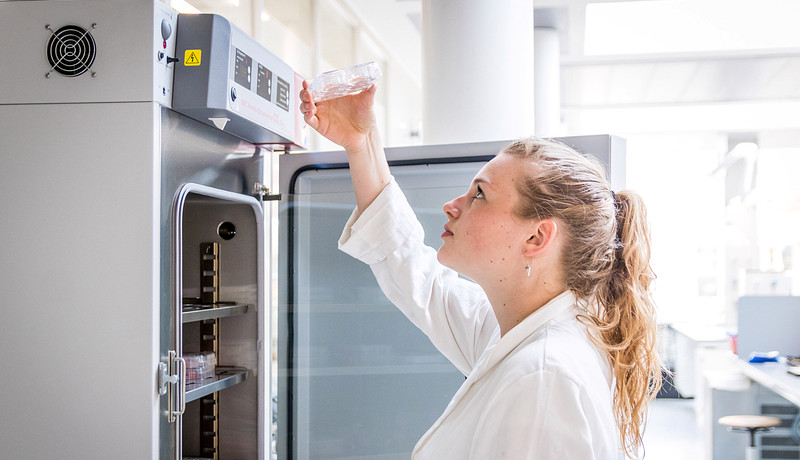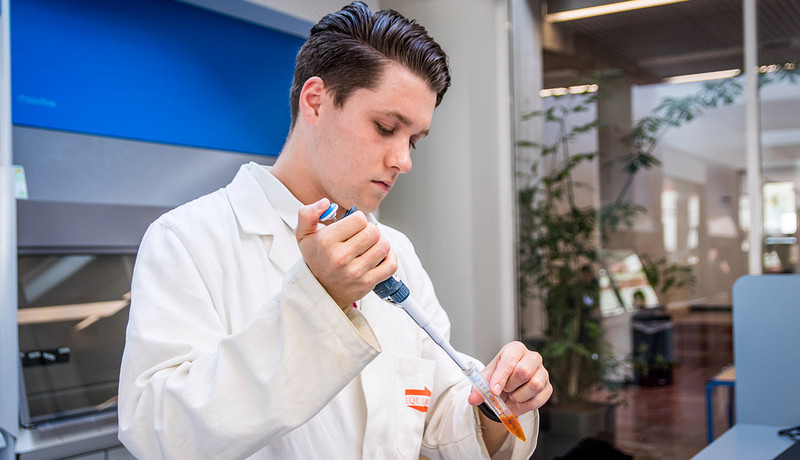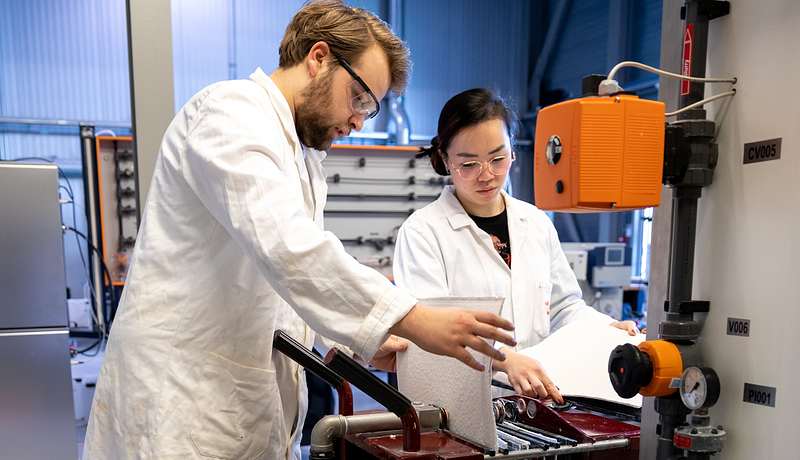Bioinformatics for the Life Sciences
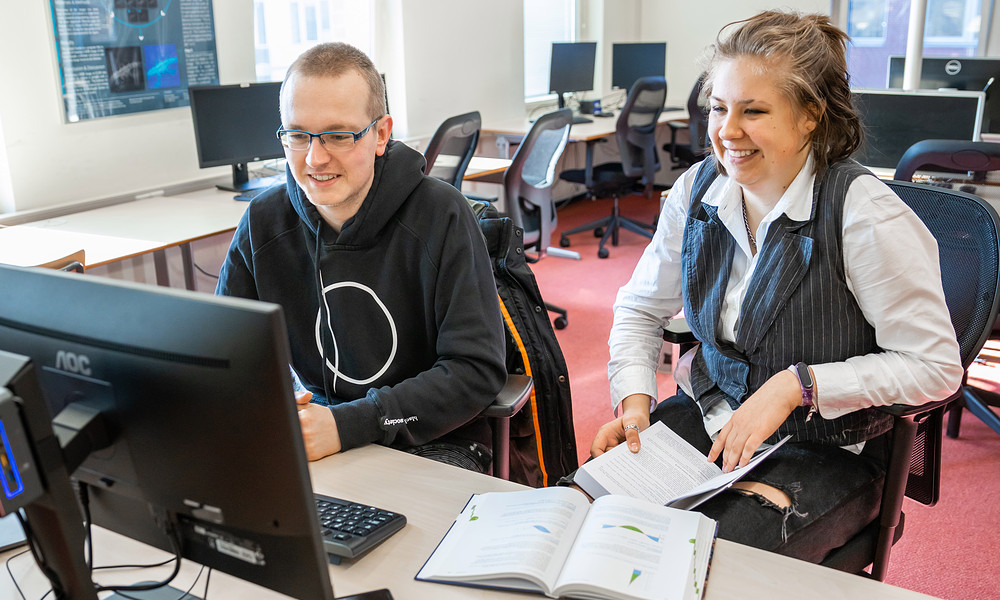
Data Science for the Life Sciences
- Level
- Language
- English
- Credits
- 30 ECTS
- Startmonths
- Start: February
- Locations
- Groningen
Does a career in Life Sciences appeal to you? Do you want to strengthen your digital skills as a Life Science student, which are relevant to your research and profession? This is your chance! The exchange programme Data Science for the Life Sciences starts in February.
About this minor
The programme Data Science for the Life Sciences focuses on acquiring and developing the digitals skills which professionals in the Life Sciences need to handle large amounts of data and solve problems in modern Biomedical Sciences. You will explore the digital toolbox of Bioinformatics and learn about genome sequencing, data processing, analysis and visualisation, database technology and the basics of programming.
In several projects, you will learn to use these tools, for instance to analyse the DNA of a patient with the intention to identify genomic variants that most likely cause certain diseases. You will learn the programming language R to explore the domain of digital experimentation and analyse genome-wide gene expression determined through RNA sequencing. After this programme, you will know everything you need to process data independently on a basic level.
| Title | ECTS Credits | Course Code |
| Genomics Project | 5 | BFVH24GENOMICS |
| Bioinformatics | 5 | BFVH24BIOINFORM |
| Data analysis and visualization using R | 5 | BFVH24DAVUR1 |
| Transcriptomics | 10 | BFVH24TRANSCRIPT |
| Machine Learning | 5 | BFVH24MACHINE |
We offer you
- One semester of the Applied Bachelor Study Biology & Medical Laboratory Research fully taught in English by experienced lecturers in the field of Bioinformatics.
- Theoretical and project work in the fields of diagnostic genome analysis and transcriptomics.
- A toolbox of Bioinformatics which gives you the basic skills to handle large amounts of data to solve problems in modern Biomedical Sciences.
- Participation in an international atmosphere, consisting of students from different countries and cultural backgrounds, including the Netherlands.
Before you can start
This exchange programme is open to students who have completed two or three years of a bachelor's programme in the field of life sciences and have a basic knowledge of genetics, cel biology and statistics. We also require a CEFR level of B2 or higher.
For questions about the content of this exchange programme, please contact the coordinator via the 'Contact & FAQ' tab above.
Admission & application
Please check with your home university whether there is an agreement set up with the Hanze School that is offering the exchange programme of your choice. To apply for and be admitted for our exchange programme you should take the following steps
-
1. Be nominated by your home university
Once you have been nominated, your nomination will be checked by us and confirmed to your home university by email. You will receive your application link during our application period.
-
2. Submit your online application
Once you have been nominated by your home university you will receive a personal application link and the application instructions during our application period. The application is fully digital and documents do not have to be send by email or postal mail. Make sure you do not miss our application deadline!
-
3. Letter of Acceptance
Once you have submitted your application we will check your documents. If you have to re-submit any documents, we will let you know. We will be sending out Acceptance Letters from the beginning of May when you start in September and from the middle of October when you start in February.
Find out more about our application process and practical matters.
Frequently Asked Questions
Contact
-

International Office ILST
Rozemarijn Kox
-
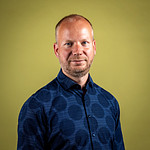
Marcel Kempenaar
Docent-onderzoeker




